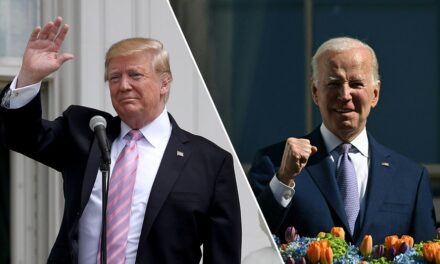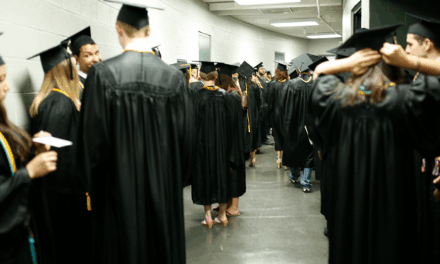In a bold and controversial move, former President Donald Trump has proposed a plan to redirect billions of dollars from the endowment of Harvard University to fund trade schools across the United States. This initiative has sparked widespread debate among politicians, educators, and the public, eliciting strong opinions on both sides of the issue.
The former president’s plan emerged from his ongoing commitment to support vocational education and provide greater opportunities for individuals pursuing careers outside of the traditional college system. Proponents of the initiative argue that it addresses the growing skills gap in America, where many high-paying job opportunities remain unfilled due to a lack of trained workers.
Supporters of Trump’s proposal point to the significant financial resources held by elite institutions like Harvard, which boasts an endowment exceeding $50 billion. They argue that many students benefit from vocational training and that funding trade schools with these funds could lead to a more skilled workforce prepared to meet the demands of the evolving job market.
Many view this initiative as a much-needed shift away from the prevailing emphasis on a four-year college degree, which has led some students into significant debt without guaranteed job prospects. Trade schools, on the other hand, offer specialized training that can lead to stable, well-paying jobs in fields such as plumbing, electrical work, manufacturing, and healthcare.
“We need to start valuing education that leads directly to employment,” said a member of Trump’s advisory team. “Redirecting funds from institutions that have accumulated massive wealth over the decades to support vocational training can help bridge the gap between education and employment.”
However, critics of the proposal have raised concerns regarding the legality and ethical implications of such a move. They argue that diverting funds from a private institution’s endowment could set a dangerous precedent, undermining the autonomy of universities and possibly hindering their ability to operate and conduct research. “This plan is not just about education; it’s about political posturing at the expense of educational institutions,” said a spokesperson for the American Council on Education.
Many educators and administrators express skepticism about the effectiveness of the proposal. They assert that trade schools should be funded through state and federal education budgets rather than raiding the resources of established universities. Critics argue that a better approach would involve improving existing vocational programs and ensuring they receive adequate support and funding instead of targeting specific institutions.
Public opinion on the matter appears polarized. Supporters of trade education celebrate the potential to enable young individuals to thrive in the workforce and to see tangible career paths. However, many more people express concerns about the implication this could have for the funding and reputation of prestigious educational institutions.
Across social media, public debate has erupted, with hashtags such as #TradeSchoolFunding and #HarvardEndowment both trending as individuals share their perspectives. Tweets ranging from robust support to vehemence against the proposal reflect the broader societal discussion about the future of education in America.
Advocates of trade education highlight stories of successful tradespeople who have built prosperous careers without having to incur enormous student debt. They share anecdotes of individuals who have found fulfillment and stability in their chosen paths, while at the same time emphasizing the need for more accessible pathways to these careers. “We need to promote skilled trades, and this funding can help make that a reality,” stated an advocate for vocational training.
Moreover, many educational experts suggest that the skills gap in various sectors can lead to adverse economic effects if not addressed. They believe that a well-trained workforce is vital for ensuring American industries remain competitive internationally. By tapping into the resources of wealthier institutions, proponents contend that significant progress could be made in developing a more skilled labor force.
On the other hand, associated criticisms overshadow the proposal’s potential merits. Opponents express the fear that this move could exacerbate divisions within the education sector, as funding battles could erupt between trade schools and traditional universities. “We should be working together to create a comprehensive educational system that values all forms of education, not pitting one institution against the other,” expressed an educational policy analyst.
This proposed funding reallocation also opens the door to larger debates about societal values regarding education. At its core, the issue revolves around what types of education are deemed worthy of investment and public support. Many ask whether there should be a distinction between academic and trade education, or if both should receive equal attention and funding as part of a diversified approach to workforce development.
As the conversation around vocational education continues to gain momentum, it is evident that Trump’s proposal has resonated with a large portion of the population who feel disenfranchised by traditional educational pathways. Comments from individuals who have faced financial hardship due to student loans often echo a desire for a change in focus—a shift towards practical, skills-based education.
Despite the contention surrounding the proposal, some analysts believe that the discussion itself could serve as a catalyst for important changes within the educational system. They argue that fostering an environment where vocational education is celebrated and invested in will ultimately benefit society as a whole, creating a diverse array of opportunities for workers across various fields.
Conversely, whether or not Trump’s initiative will gain traction in Congress remains uncertain. As the proposal encounters hurdles in both legal and political landscapes, it is evident that gaining consensus around educational funding issues is complex, especially considering the interests of the stakeholders involved, including universities, trade schools, students, and taxpayers.
The discourse surrounding the possibility of diverting funds from powerful institutions like Harvard reflects broader societal questions about equity in education. As the debate unfolds, many are hopeful that stakeholders will reach an understanding that prioritizes creating diverse pathways for success—whether through traditional or vocational routes.
In conclusion, despite the polarizing opinions this proposal has generated, Trump’s call to fund trade schools from Harvard’s endowment highlights urgent conversations around education in America. The nation stands at a crossroads, where the decisions made today could shape the educational landscape and workforce readiness for generations to come. Only time will tell how this proposal will be transformed into policy or whether it will provoke lasting changes regarding educational funding and resource allocation in the United States.
































